PDFs to Read or Download
PDFs to Read or Download
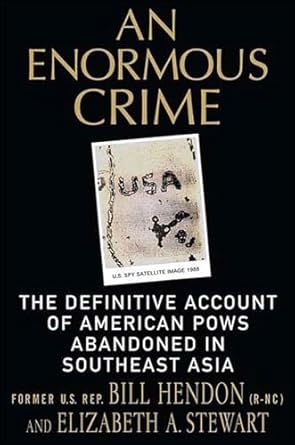
An Enormous Crime: The Definitive Account of American POWs Abandoned in Southeast Asia
by Bill Hendon & Elizabeth A. Stewart (2007)
An Enormous Crime is nothing less than shocking. Drawing on thousands of pages of public and previously classified documents, satellite imagery, and original interviews, the authors present an utterly convincing case that when the American government withdrew its forces from Vietnam, it knowingly abandoned hundreds of POWs to their fate. It reveals the reasons American soldiers and airmen were held back by the North Vietnamese at Operation Homecoming in 1973, what these brave men have endured, and how administration after administration of their own government has turned its back on them.
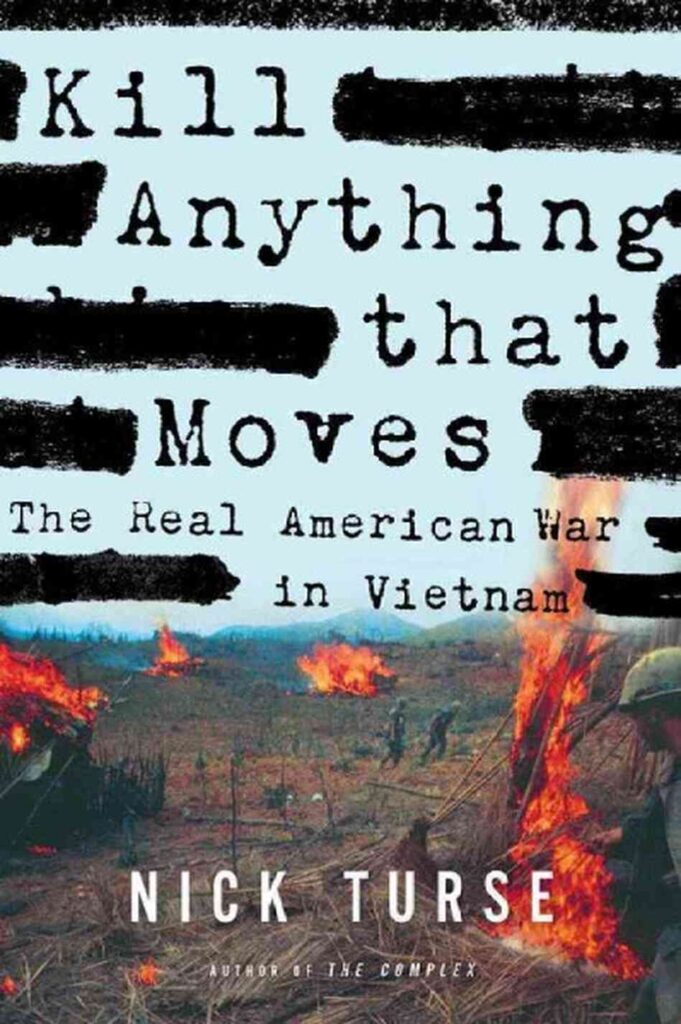
Kill Anything That Moves: The Real American War in Vietnam
by Nick Turse (2013)
Americans have long been taught that events such as the notorious My Lai massacre were isolated incidents in the Vietnam War, carried out by just a few “bad apples.” But as award-winning journalist and historian Nick Turse demonstrates in this groundbreaking investigation, violence against Vietnamese noncombatants was not at all exceptional during the conflict. Rather, it was pervasive and systematic, the predictable consequence of official orders to “kill anything that moves.”

The My Lai Cover-up — Deceit and Incompetence
by Ira A. Hunt, Jr. (2017)
The most publicized single incident of the Vietnam war was the My Lai 4 massacre. The reporting and investigation of the incident are discussed in detail as well as an explanation of how a bold cover-up was orchestrated by the two lower-level combat commanders who, concerned that their orders had been misinterpreted, desperately attempted to suppress knowledge of the extent of the massacre. Their efforts succeeded because of “incredible mismanagement” by the division’s senior leaders who were responsible for investigating the incident. This book answers many of the perplexing questions concerning the My Lai incident which have arisen over time.
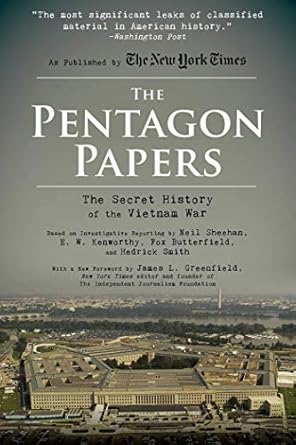
The Pentagon Papers: The Secret History of the Vietnam War
by Neil Sheehan, Hedrick Smith, E.W. Kenworthy and Fox Butterfield (1971)
The Pentagon Papers are a series of articles, documents, and studies examining the Johnson Administration’s lies to the public about the extent of US involvement in the Vietnam War, bringing to light shocking conclusions about America’s true role in the conflict. Their release demonstrated that our government had systematically lied to both the public and to Congress, and they remain relevant today as a reminder of the importance of a free press and all First Amendment rights.

The Phoenix Program: America’s Use of Terror in Vietnam
by Douglas Valentine (1990)
In the darkest days of the Vietnam War, America’s Central Intelligence Agency secretly initiated a sweeping program of kidnap, torture, and assassination devised to destabilize the infrastructure of the National Liberation Front (NLF) of South Vietnam, commonly known as the “Viet Cong.” The victims of the Phoenix Program were Vietnamese civilians, male and female, suspected of harboring information about the enemy, many of whom were subjected to extended imprisonment without trial, horrific torture, brutal rape, and in many cases execution, all under the watchful eyes of US government agencies. Based on extensive research and in-depth interviews with former participants and observers, this startling exposé blows the lid off of what was possibly the bloodiest and most inhumane covert operation in the CIA’s history.
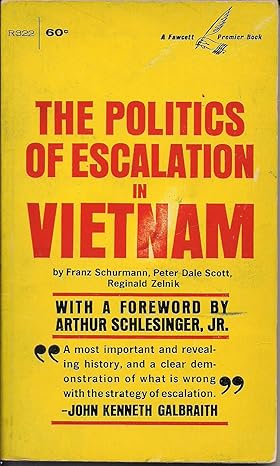
The Politics of Escalation in Vietnam
by Franz Schurmann, Peter Dale Scott, and Reginald Zelnik (1966)
The fundamental issue implied in The Politics of Escalation in Vietnam is whether our government really wishes a political settlement in Southeast Asia, or whether its dominating, if still unavowed, goal has not imperceptibly become an illusory military “victory.” After a close examination of the relationship between diplomatic and military action in Vietnam in the years since the overthrow of Diem, the authors conclude that our government has appeared to regard the possibility of a negotiated solution more as a threat than as a promise.
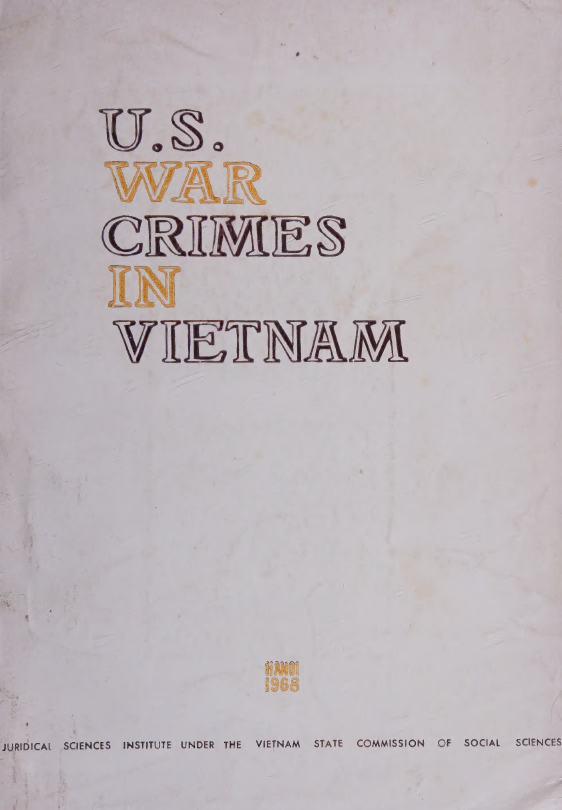
by the Juridical Sciences Institute (1968)
Many lawyers and scientists of Viet Nam and other countries, including numerous Americans, are carrying out investigations and drawing conclusions on the monstrous U.S. war crimes in Viet Nam. To this important work, the Vietnamese lawyers try in this special issue of Juridical Studies of the Juridical Sciences Institute under the Viet Nam State Commission of Social Sciences, to make their modest contribution. They deal with U.S. war crimes as a whole (Essays of Accusation Act and of Indictment), then in their various aspects (crimes against humanity, genocide, crimes of chemical warfare, war crimes in a strict sense).
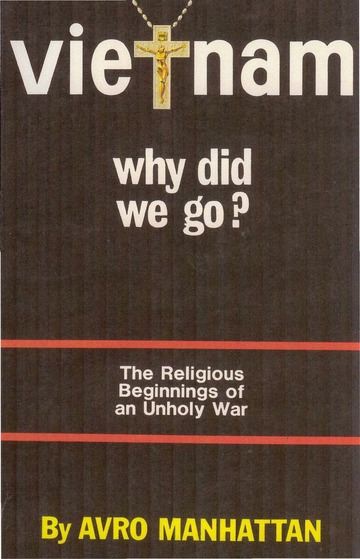
by Avro Manhattan (1984)
With an immense collection of facts, photos, names and dates, Manhattan not only proves that the Vietnam War began as a religious conflict, but also shows how America was manipulated into supporting Catholic oppression in Vietnam supposedly to fight communism.
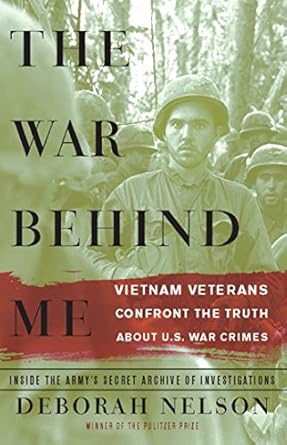
The War Behind Me: Vietnam Veterans Confront the Truth About U.S. War Crimes
by Deborah Nelson (2008)
In 2005, Deborah Nelson joined forces with military historian Nick Turse to investigate an extraordinary archive: the largest compilation of records on Vietnam-era war crimes ever to surface. Far from being limited to a few bad actors or rogue units, atrocities occurred in every Army division that saw combat in Vietnam, with punishment for these acts being either nonexistent or absurdly light. In The War Behind Me, Deborah Nelson goes beyond the documents and talks with many of those who were involved, both accusers and accused, to uncover their stories and learn how they deal with one of the most awful secrets of the Vietnam War.
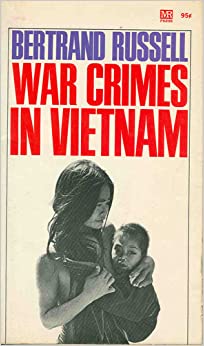
by Bertrand Russell (1967)
The fundamental fact the author wishes to establish is that the Vietnam War is the responsibility of the United States. This elementary truth is central to any understanding of this cruel war. To understand the war, we must understand America and, in doing so, we must understand that racism in the United States created a climate in which it was difficult for Americans to understand what they were doing in Vietnam. According to Russell, it was this same racism that provoked a barbarous, chauvinist outcry when American pilots who had bombed hospitals, schools, dykes, and civilian centers were accused of committing war crimes.